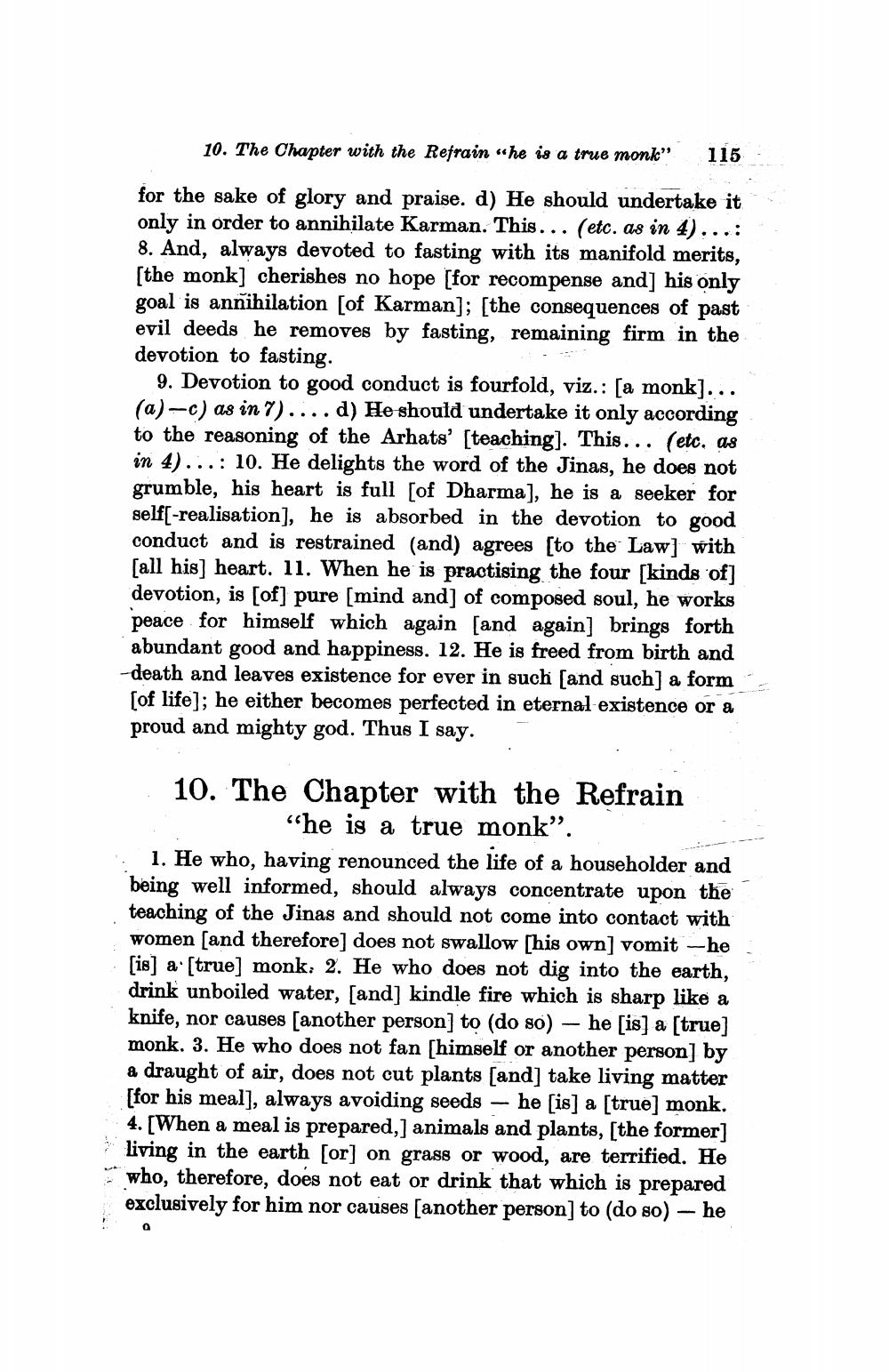________________
10. The Chapter with the Refrain "he is a true monk”
115
for the sake of glory and praise. d) He should undertake it only in order to annihilate Karman. This... (etc. as in 4)...: 8. And, always devoted to fasting with its manifold merits, [the monk] cherishes no hope (for recompense and] his only goal is annihilation of Karman): [the consequences of past evil deeds he removes by fasting, remaining firm in the devotion to fasting.
9. Devotion to good conduct is fourfold, viz.: [a monk]... (a)--c) as in 7)....d) He should undertake it only according to the reasoning of the Arhats' (teaching]. This... (etc, as in 4)...: 10. He delights the word of the Jinas, he does not grumble, his heart is full [of Dharma], he is a seeker for self(-realisation], he is absorbed in the devotion to good conduct and is restrained (and) agrees [to the Lawl with [all his] heart. 11. When he is practising the four [kinds of] devotion, is [of] pure (mind and] of composed soul, he works peace for himself which again [and again] brings forth abundant good and happiness. 12. He is freed from birth and death and leaves existence for ever in such (and such] a form (of life]; he either becomes perfected in eternal existence or a proud and mighty god. Thus I say.
10. The Chapter with the Refrain
"he is a true monk”. 1. He who, having renounced the life of a householder and being well informed, should always concentrate upon the teaching of the Jinas and should not come into contact with women (and therefore] does not swallow [his own] vomit -he [is] a [true] monk: 2. He who does not dig into the earth, drink unboiled water, [and] kindle fire which is sharp like a knife, nor causes [another person] to (do so) – he [is] a [true) monk. 3. He who does not fan [himself or another person] by a draught of air, does not cut plants [and] take living matter [for his meal), always avoiding seeds - he is a true) monk. 4. (When a meal is prepared,] animals and plants, [the former] living in the earth [or] on grass or wood, are terrified. He who, therefore, does not eat or drink that which is prepared exclusively for him nor causes [another person] to (do so) - he




